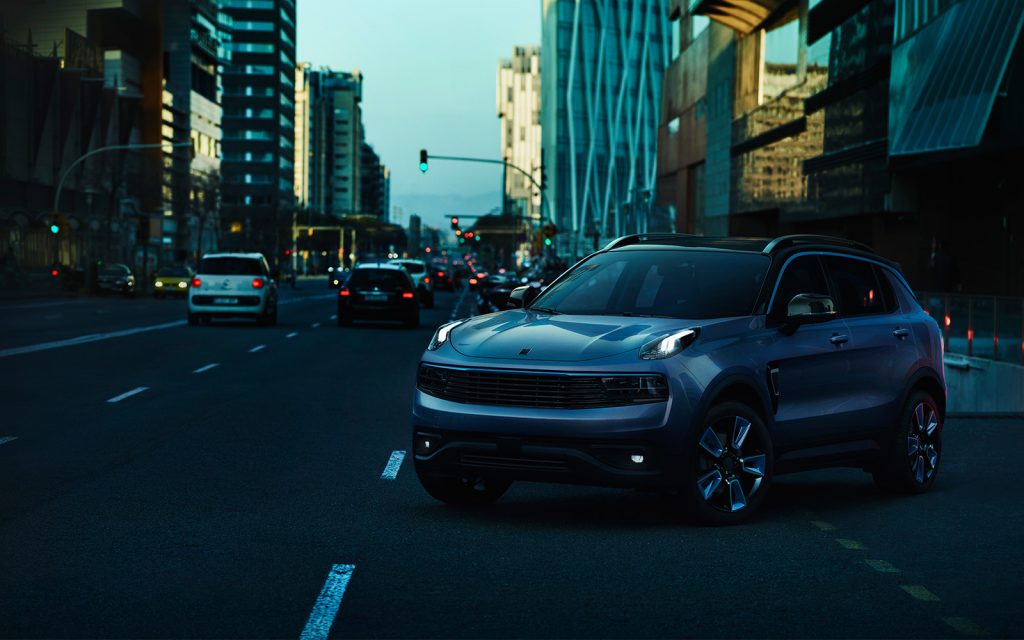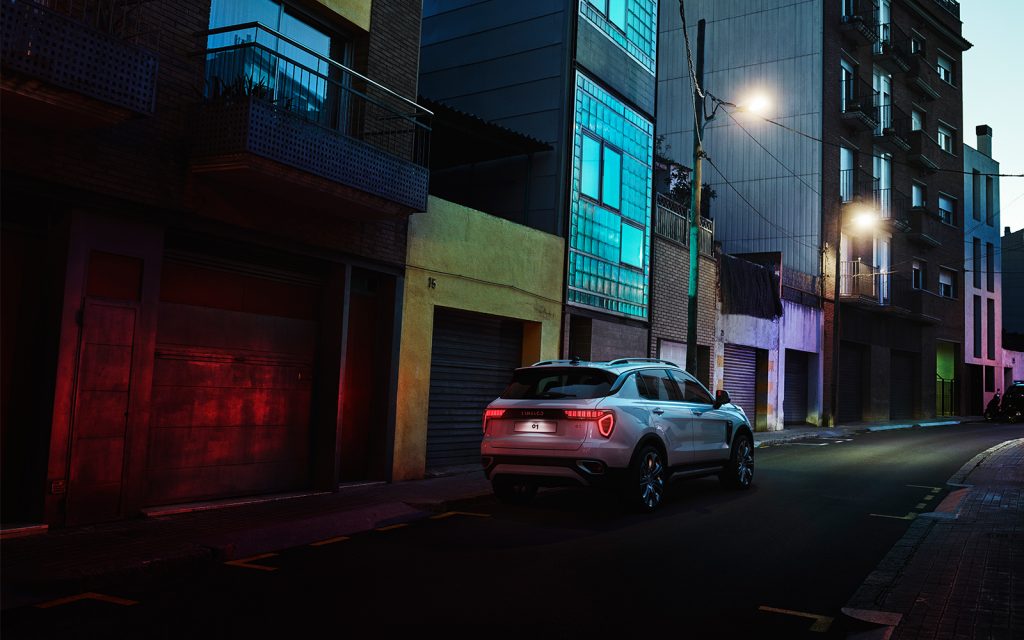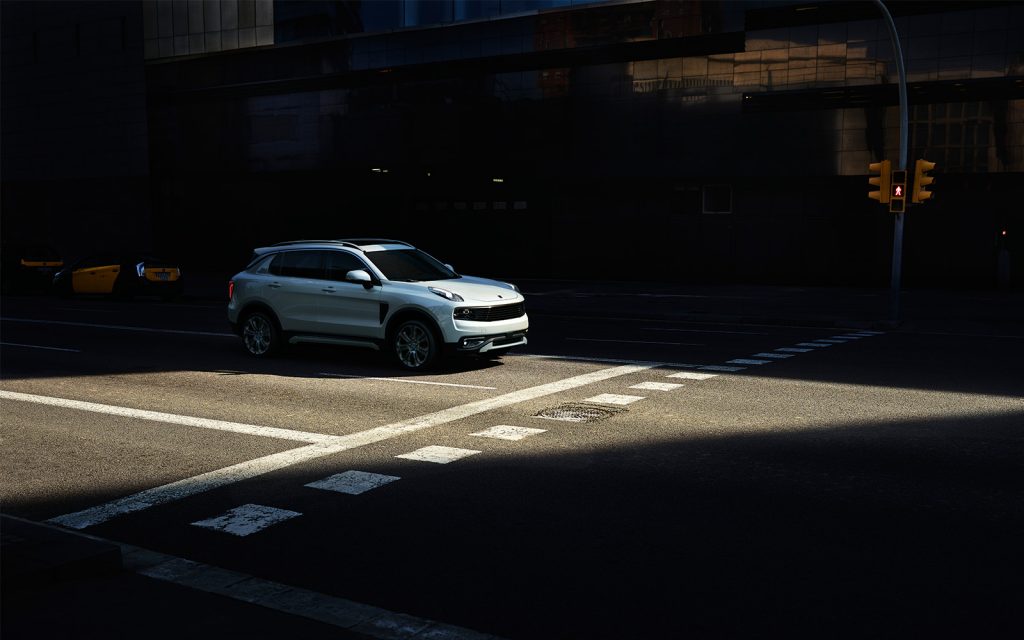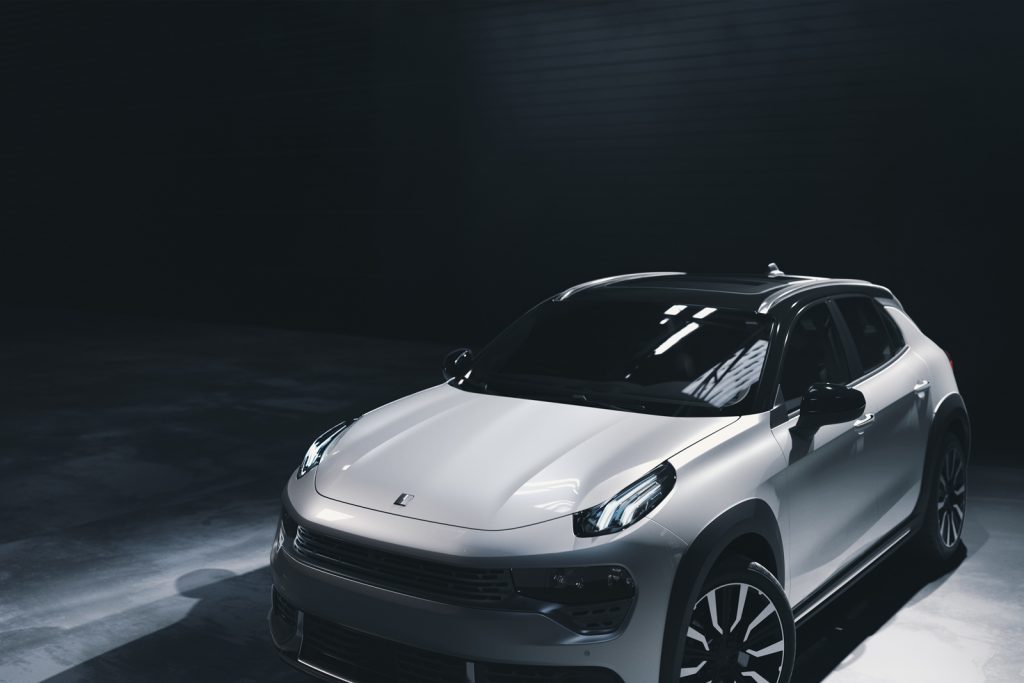Lynk & Co’s CEO Alain Visser on Reimagining Mobility and Ownership
We discuss the carmaker’s contemporary, thoughtful approach

Alain Visser seems, at first, like more of a fashion CEO than the head of one of the newer and more interesting automobile brands. His relaxed and open-minded attitude, a sneaky grin and Cole Haans tied with brightly colored shoelaces all set him apart from the other major car brand CEOs reading from teleprompters at the 2019 Shanghai Auto Show. Visser has a different job here: he’s showing the market that someone understands how drivers and their needs, desires and ownership of private transportation are changing and how to create a viable business around it. It helps, of course, to have no legacy brand issues, a supportive parent company and more than 30 years in the auto industry at Ford, GM and Volvo to back him up.
Lynk & Co, the venture launched by Geely (the biggest privately owned automaker in China that has acquired Volvo, The London Taxi Company and Lotus) has soaring ambitions to shake up the dinosaur-like car industry.

Their first model, a plug-in hybrid SUV simply named 01, launched in China in 2017. It’s not a groundbreaking car; under the hood is well-respected Volvo technology and parts (specifically the Compact Modular Architecture platform found in the Volvo XC40). The car stands on its own with an independent point of view, and its few variations keep its price down. The revolutionary concept here is how they want to launch in metropolises in Europe—starting in Amsterdam in 2020—with other markets and the United States to follow: a subscription service for their electrified and soon-full electric cars, with a minimum contract of just one month (similar to Book by Cadillac when it launched in a few test markets in the USA in 2017).
Volvo already experimented with this alternative model through Care by Volvo, where you could subscribe to a Volvo V60 for a flat rate per month (including insurance), though it required a 24-month minimum contract. Lynk & Co wants to get rid of every restriction possible that turns off city residents to car ownership and have hitting the road be as easy as signing up or canceling a Spotify or Netflix membership.

Visser notes that his first day on the job (back in October 2015) he left overseeing the 3,000+ employees as an SVP of marketing, sales, and customer service at Volvo to start alone. He’s slowly built a lean, start-up-like team, hiring people who share his point of view. It’s perhaps not a surprise that nearly everyone on his team has come from outside the car industry. The head of PR was formerly at the International Commission on Missing Persons, and the marketing lead left behind a career with creative agencies and fashion brands, all in the mindset of breaking down outdated processes that inconvenience the customer.
Lynk & Co is attempting to identify the biggest problems of car ownership—from visiting a dealership to taking care of the repairs. In its first year debuting in China (2018), Lynk & Co sold 120,414 cars (the subscription model does not exist there yet). These healthy numbers indicate that their future launches in Europe and the US are less of a fanciful dream and more of a soon-to-come reality. We envision Lynk & Co launching in the form of a lifestyle hub that follows the footsteps of Cadillac House and Intersect by Lexus. In a time where combustion is on its way out and electric vehicles allow for the opportunity to redefine all aspects of the car, Lynk & Co is taking one step further to rethink ownership entirely, eliminating the hassles that come with a set of keys.

During the chaos of this year’s Shanghai Auto Show—which Geely invited us to—we spoke with Visser about his business model, and how he wants to approach the ever-evolving concept of mobility. Here, we have highlighted some of his thoughts during our enlightening conversation.
On carving out a niche.
“You see these companies that change an industry—Apple changed the smartphone industry, Airbnb changed the hotel industry, Spotify changed the record industry, Netflix changed the broadcasting industry. And we said, ‘Why can’t Lynk & Co be the one that changes the car industry?’ I know this is very ambitious and maybe a bit arrogant but that’s really what we said we would try to do. It’s my personal belief that if the car industry doesn’t adjust to what the customers want today, they will become suppliers to clever companies who will offer services—like Google and other companies. Instead of becoming that supplier to those that offer services we said, ‘Let’s be that ourselves.’”

On their specific demographic: millennials and those who don’t want to own cars.
“In Cambridge University they have a questionnaire that they give first-year graduates where they ask, ‘What is on your top 10 list of things you want to achieve?’ And owning a car has always been number one or two on the list until, I think, 2012. And ever since, it’s not even a top 10 anymore. So it’s a trend that we see across the globe—in China, a bit less still. But definitely in the US and in Europe where the newer generation millennials want mobility. They want to be connected. They want to be mobile. They’re even ready to spend a lot of money on being mobile—via Uber, via whatever. But they don’t buy a car.”
“We see that these millennial customers want the best—they don’t compromise–they want quality, they want design, they want cool brands. They’re ready to pay for it, even, but they are not going to buy it. So that’s where we started and said, ‘What’s the business model for those people?’ So we think we can be relevant to customers who wouldn’t even want to buy a car.”
“We’ve clearly selected not to be popular to everybody but to, I think, a growing group of consumers that lives in cities, that want mobility, who find owning a car very inconvenient and we want to make it convenient to them. Are the pickup owners in Texas part of that demographic? I don’t think so. I think we’ve been trying to be honest about it, that we may not please everybody. But that’s who we are.”

On the Lynk & Co team.
“We really tried to create a lifestyle brand. I know this sounds a bit weird, but that’s what we want to do, really create a lifestyle movement. 70% of the people in my team are non-automotive. They come from the fashion world, from retail brands. I have people in my retail team from H&M, from Starbucks, from Montblanc. The entire marketing team, nobody comes from the car industry; they’re the best ones. The car industry has pretty boring marketing.”
“I always tell the marketing team, ‘Trying to be cool is not cool.’ So it’s always this thin ice that you walk on. My simple strategy has always been the best way to be relevant to millennials is to hire them. So the people in my team are millennials. When I talked my old car bullshit of ‘30-second commercials,’ they just looked at me like, ‘Not for us.’ So these people who will hopefully buy us, or become a member, are the ones deciding. So I have a very young team. I think I’m the oldest in our company. More or less.”

Visser’s prediction of what the car industry will look like.
“My personal belief is that the car industry is going to evolve into two parts: the premium parts—which is Lotus, Lamborghini, Ferrari, Porsche, and people will always buy it because it’s a status symbol. And then you have mainstream mobility where I think that’s going to radically change. People will just do what we do: order a car, order an Uber, order autonomous ride sharing. I think the volume industry is going to collapse. People will not buy cars anymore, but subscribe to a mobility service. And then the premium brands will continue to exist because the rich and wealthy of this planet will still buy their toys.”

On personal growth.
“My friends, they don’t understand how the hell I survived. Ford and GM are great companies but super, super-traditional and not brand-focused. And so for me, I think I’ve spent the last 15 years of my previous career being frustrated by, ‘Why is it like that? Why aren’t they changing? Why is it that every meeting I sit in is about an improved suspension or an improved transmission? Why isn’t it about the consumer?’ And every time, I raised the question they looked at me like, ‘You’re a naive, stupid Belgian.’ It was always like, ‘We know better.’ And so I was happy that I can do what I really stand and believe in, in this company and for me it’s been easy, because it’s what I want. I have to admit that even though I thought I am the one here revolutionizing by recruiting people that come from other industries, they often point at me saying that I’m also from the old school.”
“I often catch myself saying, ‘Shit, this is GM and Ford; this is not Lynk & Co’ So it’s good for me to be challenged now as well. I feel so much younger than I felt 10 years ago. I’m under massive pressure but I am so convinced that this is the right thing, and I’m so convinced that it will work. And if it doesn’t work I’m very proud that I’ve tried it. But I don’t even count on that option. So I feel quite relaxed.”
Images courtesy of Lynk & Co












